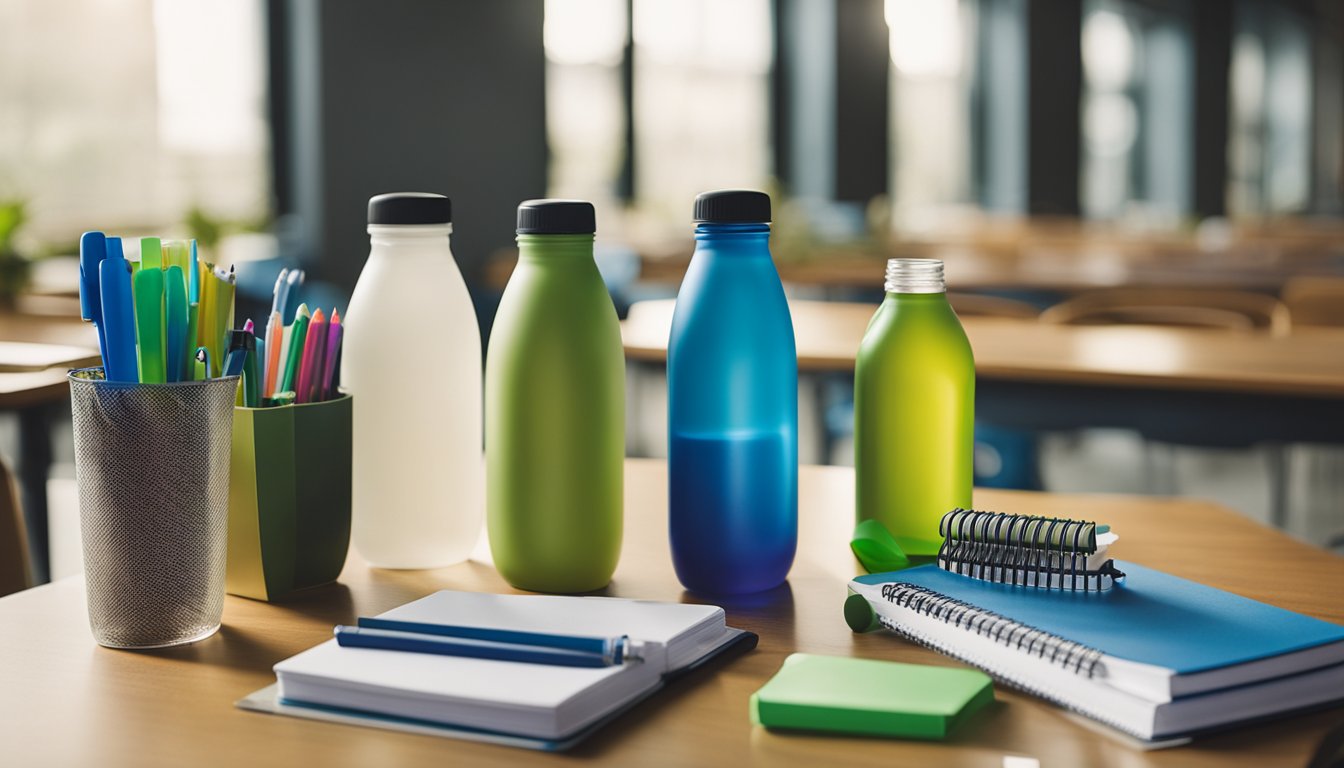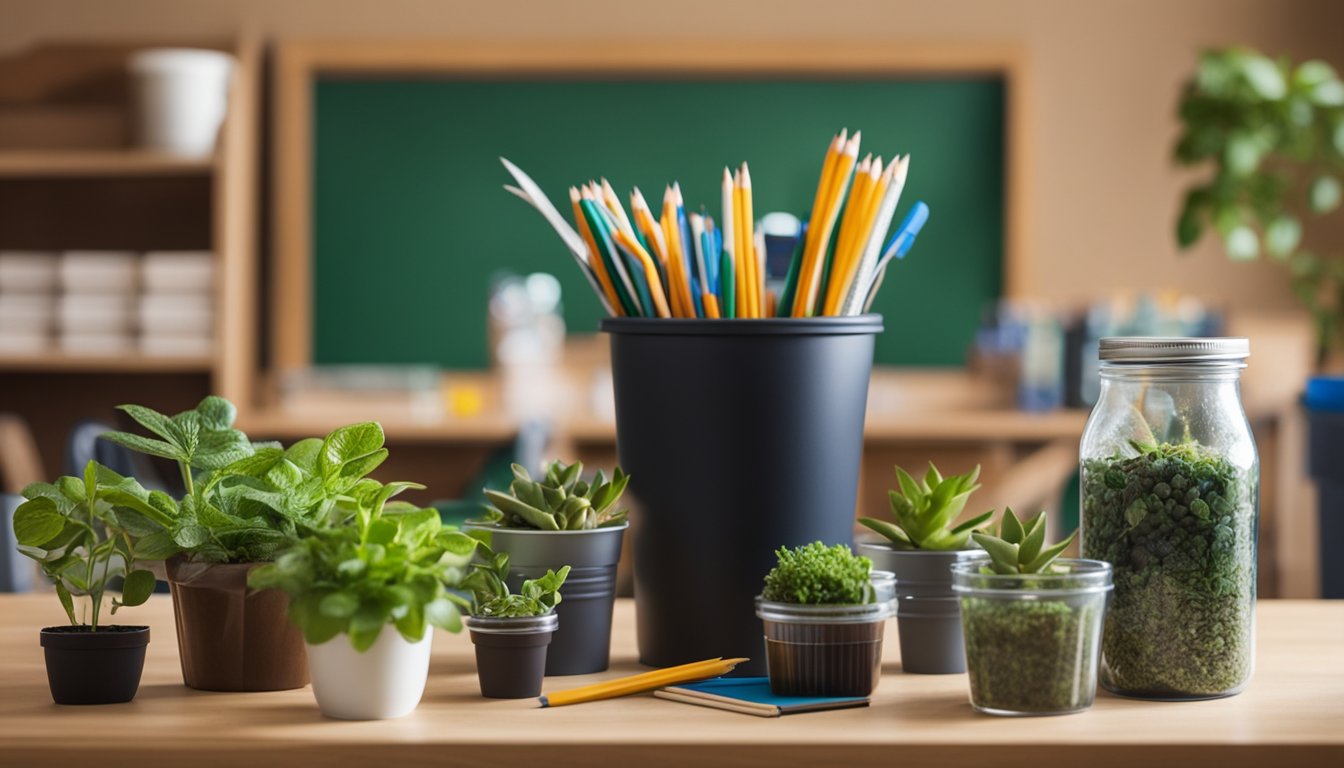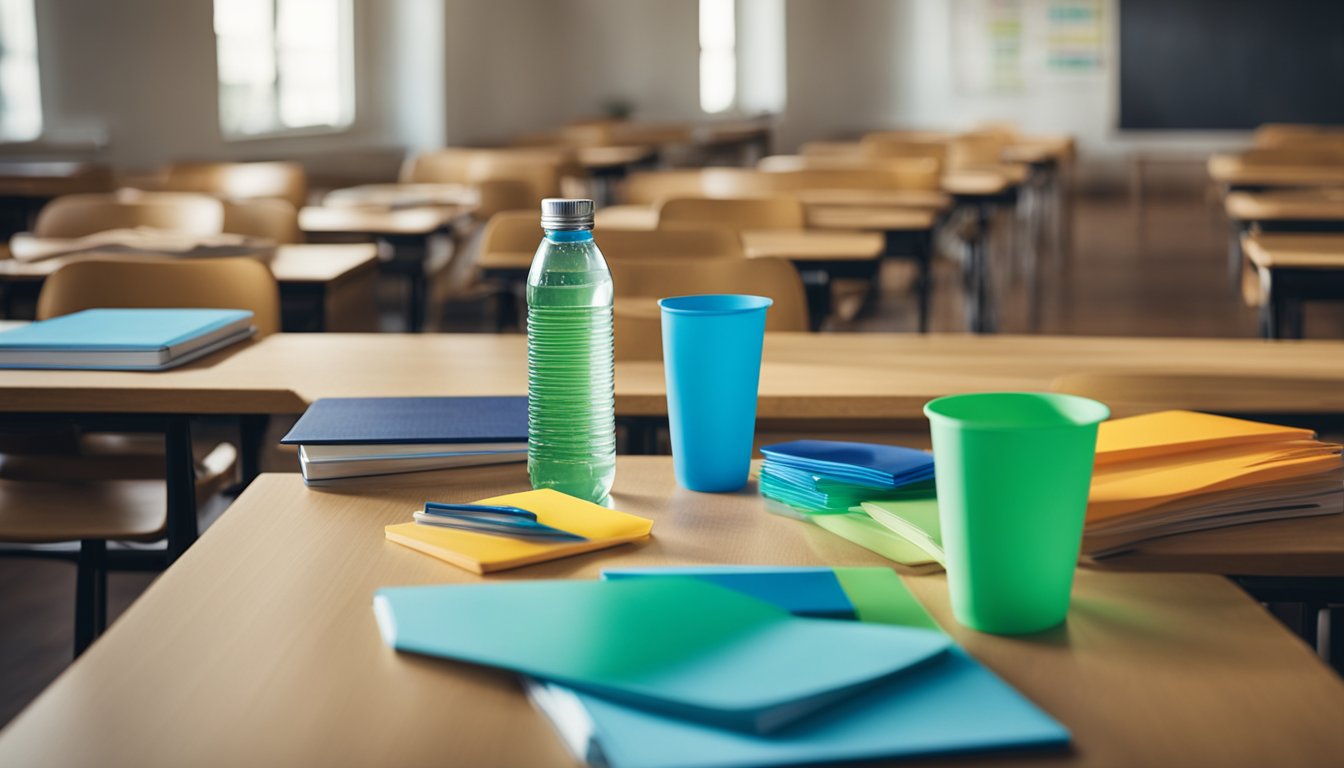Late updated: 02 Feb 2025 14:02
Written by: Sarah Hollister
Eco-Conscious Tips For Sustainable School Supplies: A Guide to Greener Learning
Choosing sustainable school supplies can significantly reduce our environmental footprint, a responsibility that lies with us all. We've witnessed a growing shift towards eco-conscious living, and this extends into the classroom. By opting for products made from recycled materials or those that are designed for reusability, we actively contribute to a more sustainable future.

With the array of supplies available, it can feel overwhelming to choose the right ones. We support brands committed to ethical production and sustainable practices, offering options that are both planet-friendly and practical. This not only reduces waste but educates the younger generation on the importance of environmental stewardship.
Together, we have the power to inspire lasting change. Applying eco-conscious practices in selecting our school supplies can set a precedent for mindful consumption. By prioritising sustainable choices, we teach the next generation to care for the world they are inheriting.
Key Takeaways
- Sustainable supplies reduce environmental impact.
- Eco-friendly products encourage responsible consumption.
- Educating youth on sustainability fosters long-term change.
Identifying Eco-Friendly School Supplies

Selecting eco-friendly school supplies requires understanding sustainable materials, avoiding harmful chemicals, and opting for reusable over disposable options. These actions contribute significantly to reducing our environmental impact.
Understanding Sustainable Materials
When shopping for school supplies, choosing items made from sustainable materials is essential. Recycled paper and recycled plastics are excellent options for notebooks and folders. They reduce the reliance on virgin materials and help minimise waste in landfills.
Natural materials like organic cotton and bamboo are preferred for products such as reusable bags or eco-friendly backpacks. They're biodegradable and have a lower impact during production. Using stainless steel or silicone for water bottles ensures durability and long-term use.
Sustainable materials not only offer functionality but also promote a culture of eco-consciousness among students.
Avoiding Harmful Chemicals
Eco-friendly supplies are not just about the materials used but also about what they don't contain. Products should be free from harmful chemicals like lead, chlorine, and phthalates. These substances can be detrimental to health and the environment.
Choosing PVC-free items reduces exposure to toxic chemicals. Stationery like pens and erasers should be checked for safe, non-toxic ingredients. We should seek items that are marked as biodegradable or free from hazardous components.
Prioritising our children's health and the planet's wellbeing is achieved by making informed decisions about the chemicals in everyday school supplies.
Choosing Reusable Over Disposable
Opting for reusable products over disposable ones is crucial in reducing waste. Reusable water bottles, lunch containers, and reusable snack bags are indispensable in an eco-friendly school kit. They eliminate the continual waste of single-use plastics and contribute to a zero-waste lifestyle.
Reusable items made from recycled materials offer durability and sustainability. Instead of regular backpacks, consider eco-friendly backpacks made from organic or recycled fabrics. Such choices are economical in the long run and significantly curtail environmental harm.
Emphasising reusable over disposable items, we encourage lasting habits that benefit both students and the environment.
Embracing Environmental Stewardship in Education

Our approach to environmental stewardship in education involves promoting sustainability through durable and eco-friendly school supplies, supporting innovative eco-conscious brands, and minimising carbon emissions and deforestation. These actions not only benefit the environment but also foster a sustainable mindset among students and educators alike.
Promoting Durability and Longevity
The first step in embracing environmental stewardship is to focus on durability and longevity in school supplies. By choosing items made from robust, sustainable materials, we reduce waste and promote a culture of care and maintenance. Stainless steel water bottles, for instance, last longer than plastic ones and don't contribute to landfill waste.
Similarly, recycled paper products are an excellent option, as they cut down on new paper demand and save trees. Many schools are turning to biodegradable pens and recycled newspaper pencils, which are not only environmentally friendly but also inspire students to think differently about everyday items. The emphasis on durability ensures that educational tools withstand the test of time while keeping the ecological footprint minimal.
Supporting Eco-Conscious Brands and Innovations
Incorporating eco-conscious brands into our educational framework reinforces our commitment to sustainable practices. Brands like Sprout and their plantable pencils exemplify innovation by offering products that give back to the earth. Once these pencils are too short to use, they can be planted to grow herbs or flowers, making them a wonderful teaching tool for sustainability.
Beeswax crayons offer a non-toxic and biodegradable alternative to traditional paraffin wax crayons. Additionally, refillable pens are a smart choice, reducing plastic waste by minimising the need for disposable pens. By choosing brands that prioritise environmental responsibility, we support a wider shift towards sustainability and encourage students to adopt similar values.
Minimising Carbon Emissions and Deforestation
Reducing carbon emissions is another crucial aspect of our strategy. Opting for carbon-neutral supplies and manufacturing processes helps minimise our carbon footprint. For instance, selecting recycled polyester for backpacks and other fabric items significantly cuts down raw material usage, reducing the environmental impact of production.
Avoiding materials that contribute to deforestation, such as unsustainably sourced wood or paper, is vital. Instead, we can look to alternatives like recycled or FSC-certified products that ensure forests are managed sustainably. By implementing these practices, we set a powerful example for students, highlighting the importance of protecting our planet's resources for future generations.
Frequently Asked Questions

In our pursuit of sustainability, selecting the right school supplies can be a transformative step. Explore eco-friendly alternatives to plastic, opt for minimal-impact materials, and utilise reusable items to significantly cut down on waste.
What alternatives to plastic stationery are available for eco-conscious students?
Eco-conscious students have several alternatives to traditional plastic stationery. Tools made from recycled aluminium, bamboo pens, and biodegradable rulers are good options. Brands offering products constructed entirely from recycled or sustainable materials cater to those keen on reducing their carbon footprint.
How can I ensure my school supplies have a minimal environmental impact?
To minimise impact, we can prioritise products made with recycled or sustainably sourced materials. Choose items with minimal packaging and those that can be easily recycled at the end of their life. Certifications like FSC or Rainforest Alliance on paper products ensure sustainable sourcing.
Which materials should I look for when choosing sustainable school supplies?
Sustainable materials include recycled paper, biodegradable plastics, and organic cotton. FSC-certified wood and metal products, as well as natural fabrics for bags, are environmentally friendly choices. These materials are often more durable, reducing the frequency of repurchase.
In what ways can reusable items reduce waste in a school environment?
Reusable items like water bottles, snack containers, and fabric lunch bags significantly decrease single-use plastic waste. Using refillable pens and notebooks with replaceable pages also helps reduce the volume of discarded materials. These practices contribute to a less wasteful school environment.
How can purchasing recycled products contribute to a more sustainable school system?
By opting for recycled products, we support the circular economy, reducing demand for new raw materials. This helps lower energy consumption and emissions associated with production. Schools that utilise recycled products help foster sustainability while educating students on eco-conscientious practices.
What actions can schools take to promote sustainability in classrooms?
Schools can implement recycling programmes and encourage the use of digital resources over paper. Integrating sustainability education into the curriculum and providing facilities for water bottle refills are impactful measures. Schools can also host workshops to engage students in sustainable practices.
